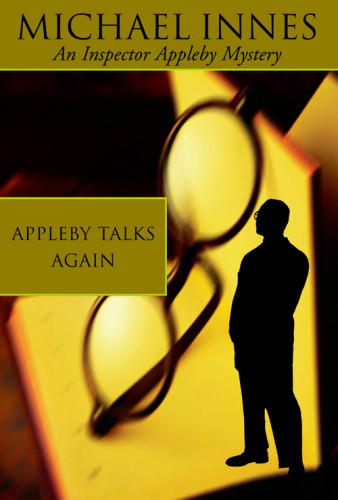

Most ebook files are in PDF format, so you can easily read them using various software such as Foxit Reader or directly on the Google Chrome browser.
Some ebook files are released by publishers in other formats such as .awz, .mobi, .epub, .fb2, etc. You may need to install specific software to read these formats on mobile/PC, such as Calibre.
Please read the tutorial at this link: https://ebookbell.com/faq
We offer FREE conversion to the popular formats you request; however, this may take some time. Therefore, right after payment, please email us, and we will try to provide the service as quickly as possible.
For some exceptional file formats or broken links (if any), please refrain from opening any disputes. Instead, email us first, and we will try to assist within a maximum of 6 hours.
EbookBell Team

4.8
44 reviewsIn typical Appleby fashion, these mysteries are as comical as they are perplexing & endlessly entertaining.
Leading the reader through dusty library shelves, dark alleys, & decaying mansions, & filled with tales of murder & mischief, ghosts and goblins, this novel is a witty, offbeat collection of Golden Age mysteries from one of the most esteemed writers of Classic Crime.
Appleby Talks Again was first published in 1956.
Michael Innesis the pseudonym of John Innes Mackintosh Stewart (30 Sept. 1906 – 12 Nov. 1994). Innes was a Scottish novelist & academic. He is equally well known for the works of literary criticism & contemporary novels published under his real name & for the crime fiction published under his pseudonym. Many devotees of the Innes books were unaware of his other “identity”, and vice versa. Innes published nearly 50 crime novels & short story collections in his lifetime, but is best known for creating Detective Inspector Sir John Appleby of Scotland Yard, who eventually through the course of the later novels becomes Commissioner of the Metropolitan Police. He attended Edinburgh Academy, & later studied English literature at Oriel College, Oxford.Having lectured in English at the University of Leeds from 1930 to 1935, he would then become Jury Professor of English in the University of Adelaide, South Australia. Once he returned to the United Kingdom he lectured at Queens, Belfast from 1946 to 1948. In 1949he became a Fellow of Chr